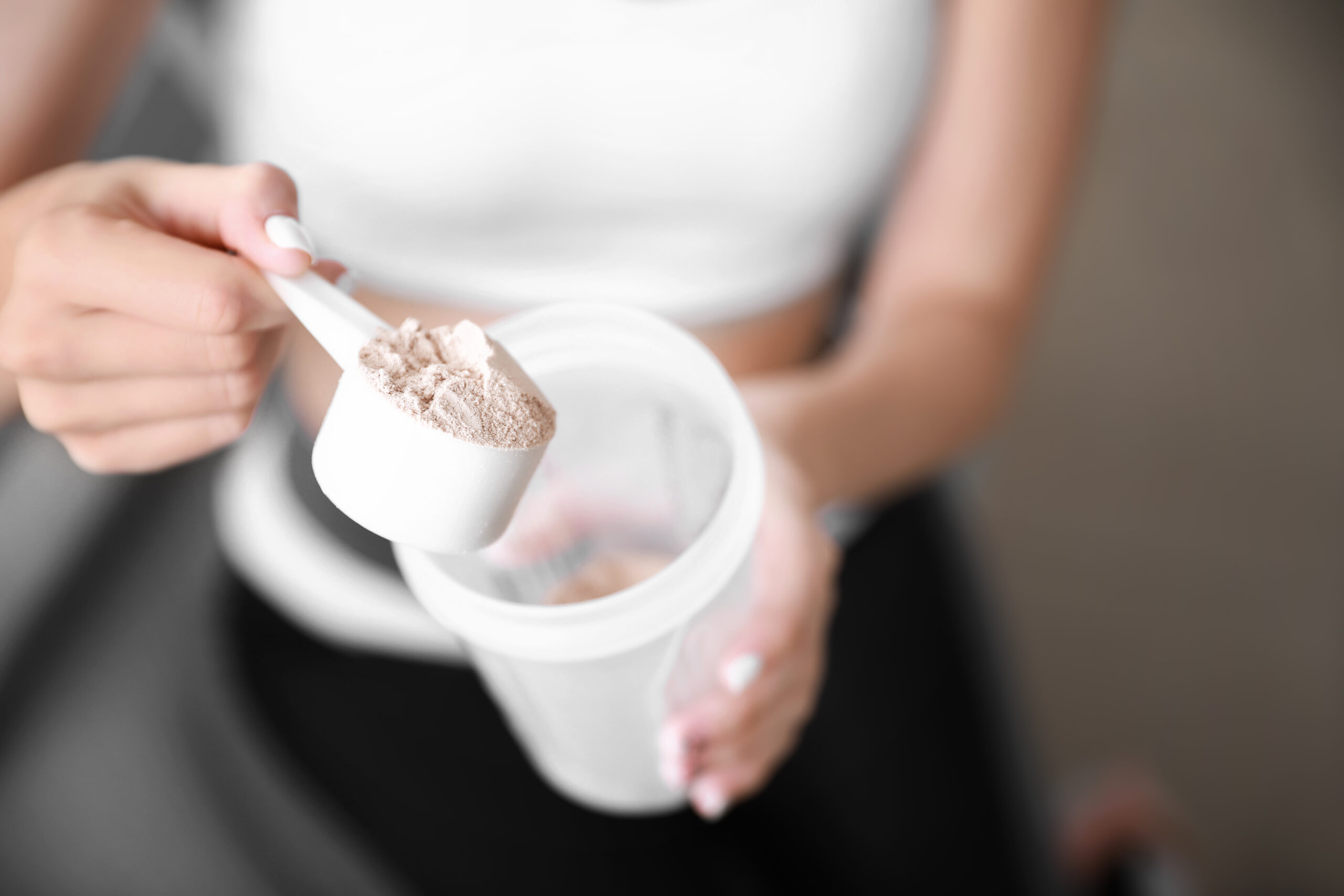
A GREAT WHEY TO ENHANCE HEALTH FOR WOMEN
With March being Women’s History Month and March 8th International Women’s Day, it’s a pertinent time to look at how one of our hero ingredients, whey protein, can support heath in women. When looking at certain areas of nutrition research, it’s been regularly reported that women are significantly less represented in studies than men. In 2021, an analysis of 6 top sport and exercise science journals found that out of over 5200 publications, only 6% included females only, compared to 31% for males and 63% for both male and female. However, this is starting to change, and more investments are being made in nutrition research focused on women. Here, we highlight some studies that demonstrate how whey protein can support several health benefits in women.

Women show greater muscle building response to 25g whey protein than men.
Muscle mass maintenance is mainly controlled by the increase in muscle protein synthesis following nutrient intake. While this has been extensively studied in men, it has been unclear if there is a difference in this response between women and men. This was tackled in a study which recruited 12 healthy men middle-aged men and 12 healthy middle-aged women to looked at their response to ingestion of 25g whey protein. Using isotopic tracers, muscle biopsies and blood markers, researchers assessed dietary protein digestion and amino acid absorption kinetics, as well as muscle protein synthesis rates both at rest and after feeding. Plasma amino acid levels rapidly increased after protein ingestion, with no differences between middle-aged women and men, and also no difference between men and women in the absorption level of the protein. Interestingly, women showed a higher muscle protein synthesis rate both in the initial two hours and full 5 hour-period after consuming the whey shake compared to men.
Horstman et al. J Clin Endocrinol Metab. 2019 Apr 1;104(4):994-1004.
Whey protein supplement increases satiety hormone levels and decreases central fat more than collagen supplement in women.
Protein supplements are usually used to control body weight, however, the impact of protein quality on body fat reduction is unknown. A study investigating the effects of supplementation of either whey protein (WG) or hydrolysed collagen supplementation (CG) on dietary intake, adiposity and biochemical markers in overweight women set out to shed some light on this topic. In this randomized double-blind study, 37 women with a mean BMI >30 consumed sachets containing 40 g/day of concentrated whey protein (25 g total protein, 2.4 leucine, 1.0 valine, 1.5 isoleucine, n = 17) or 38 g/day of hydrolysed collagen (26 g total protein, 1.02 leucine, 0.91 valine, 0.53 isoleucine, n = 20) as an afternoon snack. Their dietary intake was then evaluated by a 6-day food record questionnaire. At the beginning and after eight weeks of follow-up, body composition and a number of blood markers were assessed, including metabolic markers and satiety hormones. Supplements provided the same amount of protein and calories. Intake of calories, protein, carbohydrate and fats were the same in both groups; however, intake of branched chain amino acids and leucine were significantly higher in the whey group compared to the collagen group. BMI increased in the collagen group, but not in the whey group. The whey group also found a decrease in android (central) fat and increase in nesfatain concentrations compared to the collagen group. Nestafin is a neuropeptide produced by the body that reduces appetite. Whey protein supplementation in overweight women increased nesfatin concentrations and could promote increase of resting metabolic rate as part of body composition improvement programs compared to collagen supplementation for 8 weeks. Additionally, our findings suggest that collagen may not be an effective supplement for overweight women who are attempting to alter body composition.
Giglio et al. Nutrients. 2019 Sep 2;11(9):2051
α-lactalbumin-rich whey protein improves sleep and recovery in female athletes.
Strenuous exercise, particularly in the evening, can negatively impact sleep quality which can affect subsequent exercise performance. Researchers in Australia investigated whether supplementing with 40g alpha-lactalbumin (95% purity) vs standard WPI vs placebo after an evening exercise session impacted sleep quality in trained female athletes. They also looked at whether there was an effect on physical and cognitive performance the following day. They found that alpha-lac led to improvements in sleep characteristics compared to the WPI and placebo and prevented reductions in physical performance the following day. Furthermore, alpha-lac reduced ratings of mental effort and mental demand during cognitive tasks compared to whey protein isolate placebo and water.
Miles et al. Med Sci Sports Exerc. 2021 Dec 1;53(12):2618-2627.
Whey protein improves blood glucose control and alleviates stress in gestational diabetes.
Gestational diabetes is a condition in which women develop diabetes (high blood sugar) during pregnancy and affects up to 10% of pregnancies in the US. If unmanaged, it can increase the risk of high birth weight, early labor and type 2 diabetes in later life. Whey protein has previously been shown in adults to lower the glycaemic response to a meal, when consumed prior to the meal (“pre-load”), and this was recently investigated in women with gestational diabetes mellitus (GDM). Sixty women with gestational diabetes mellitus were recruited to a study in which half received a preload drink containing 20 g whey protein (GDM-W), and the other half received a control flavored drink (GDM), prior to a meal. The trial lasted for 14 days. Changes in stress hormones, oxidative stress and insulin resistance (IR) were measured. In the GDM-W group, postprandial blood glucose significantly decreased across various time points over the 14days, with an increase in plasma 2 h insulin, and significant decrease in insulin resistance on day 14. Markers of oxidative stress significantly decreased on day 14, along with a reduction in stress hormones and cortisol. This study demonstrated whey protein supplementation could be a useful strategy to improve hyperglycemia by alleviating stress disorder and oxidative stress injury in GDM women.
Feng et al. Gynecol Endocrinol. 2021 Aug;37(8):753-757.